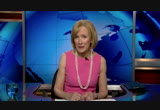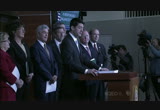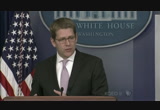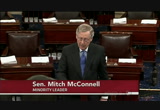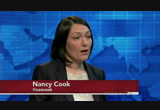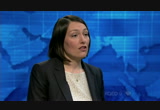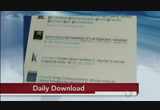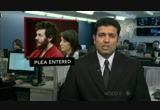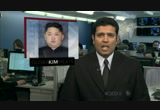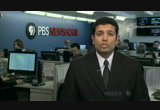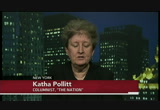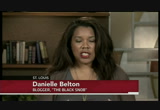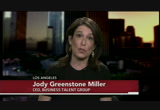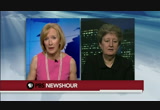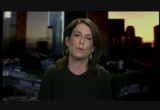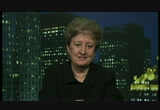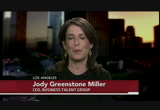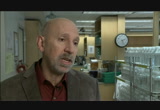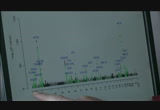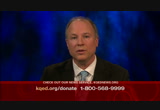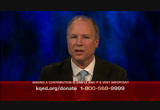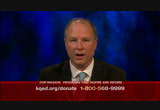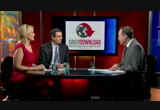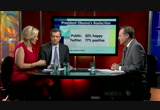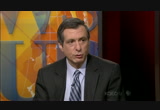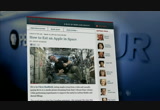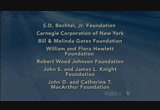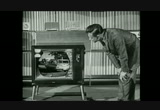tv PBS News Hour PBS March 12, 2013 6:00pm-7:00pm PDT
6:00 pm
>> and by the bill and melinda gates foundation. dedicated to the idea that all people deserve the chance to live a healthy, productive life. >> and with the ongoing support of these institutions and foundations. and... >> this program was made possible by the corporation for public broadcasting. and by contributions to your pbs station from viewers like you. thank you. >> woodruff: the latest fiscal fight in congress formally began today, the process of trying to adopt a budget for the fiscal year that begins in october. house republicans went first; senate democrats go tomorrow. neither side is likely to win many converts across the aisle, but for now, it's all about spelling out political differences. newshour congressional
6:01 pm
correspondent kwame holman begins our coverage. >> we believe that we owe the american people a balanced budget. for the third straight year we've delivered. in fact we balanced this budget in just ten years. >> reporter: as house budget committee chairman paul ryan spelled it out, the republican plan would cut the deficit by 4.6 trillion dollars over ten years. some of that would come through the higher taxes approved in january. but 1.8 trillion would come from repealing the president's signature health care law. in addition the plan convers medicaid to a block grant to the states and reduces its federal funding share. ryan also proposed, as he has in the past, transforming medicare by giving seniors a fixed amount to purchase traditional program coverage or a private plan. last year's republican vice presidential nominee acknowledged that the plan won't get past senate democrats or president obama. instead, he said, it's an opening bid. >> will the president take
6:02 pm
everyone of these solutions? probably not. are a lot of these solutions very popular and did we win these arguments in the campaign? some of think so. and so what we're saying is here's our offer. here's our vision. eiras how we propose to balance the budget and grow the economy, repair the safety net, save medicare. >> reporter: be democrats quickly charged that ryan's math, especially on taxes, does not add up. he would eliminate most deductions and lower tax rates. white house spokesman jay carney said ryan asks nothing from the wealthy to help cut the deficit. >> there is no way to do that in a revenue-neutral way without raising taxes substantially on middle class families. we look at the ryan budget as a perfect example of why balance is so necessary because this is what... this is the alternative to balance. it results in unfair tax hikes on middle class americans and it results in undue burden on middle class americans through
6:03 pm
the cuts envisioned. >> reporter: democrats in the senate are unexpected to unveil their budget for the fiscal year tomorrow. unlike the house republicans plan the measure is expected to include a mix of spending cuts and tax increases. the senate page ontario leader harry reid offered a preview this morning. >> the democrat plan will cut wasteful spending and close tax loopholes that benefit the rich and invest what the economy needs to go really hard, to continue to build, to grow. it will increase a strong middle class. >> reporter: democratic aides said the plan would cut deficits by about 1.8 trillion dollars over ten years. half through tax revenues and half from spending cuts. but senate republican leader mitch mcconnell said he has low expectations. >> call me a skeptic but there's little chance the budget my senate democratic friends put forward will balance today, ten years from today or ever. i doubt it will contain much in the way of spending reform
6:04 pm
either. >> reporter: amid the back-and-forth, president obama began a series of four trips to capitol hill this week starting today with a meeting with senate democrats. he came and went without comment, but he'll be back tomorrow to meet with house republicans on thursday he confers with senate republicans and house democrats. >> brown: we explore further the politics and the policies of the competing budget plans with nancy cook, the economic and fiscal policy correspondent for the "national journal." so, still again, two very different visions, right? you referred to it in your report as world views. start with the republicans. what did we hear today? >> sure. a lot of what we heard from the republicans is very similar to what we heard from them in the past. they want to change medicare for people starting in 2024 and turn it into more of a voucher program where people go out and buy their own private health insurance. they want to block grant things like medicaid and food stamps so that it goes through state
6:05 pm
funding. it changes from an open entitlement program to something that will only support people as long as the money lasts. and they want to unwind some things that federal government spends money on, like housing giants fannie mae and freddie mac. but these are really policies that we have heard from them before. there wasn't a lot of new substance there. >> brown: in fact you were at the press conference. i was watching a reporter pointed that out to paul ryan. he was sort of... we saw a little bit of it. he was unapologetically continuing on, no matter what happened in the election, right? >> there's a feeling on the part of the house republicans that although the presidential election was lost for the republican party, the house republicans feel like they still maintain the majority in the house. they feel like that gives them some sort of a mandate. i feel the ironic thing in the ryan budget and the biggest change is that a lot of the savings that ryan uses to balance the budget in ten years -- that is a new policy goal for him -- actually comes from signature white house and
6:06 pm
president obama policies, thing like the affordable care act and the new tax revenue gained by the fiscal cliff deal. >> brown: that was passed at the end of last year. >> right. brown: that plays into how he's getting to his budget balance. >> that is a huge part of the math of how he's getting there in the ten-year window. he doesn't make medicare changes until 2024. so that wasn't really part of it. it was through these other savings. >> brown: on the democratic side, it's tomorrow. patty murray is the senate budget committee chair. she's putting forth a plan. partly, this is interesting, because there hasn't really been a democratic plan for a while, right? >> that's absolutely right. the senate democrats haven't produced a budget since 2009. this was a real talking point of the republicans. so part of the challenge of her budget is to defang that idea that the senate democrats don't produce a budget. but also it's a tricky thing politically because she has to unite very different people in
6:07 pm
her caucus. everyone from, you know, the liberal independent senator from vermont, bernie sanders, to mark warner who is a senator from virginia who has been much more of a deficit hawk. these are people both on her committee that she has to unite. >> brown: you can't walk through all of it. give us a couple of examples of what is expected that tows the line between the two extremes in the party. >> the biggest difference is she's calling for $1 trillion in new revenue. that's going to come through closing loopholes whereas the ryan budget doesn't want any new revenue. that's a big headline difference. the other thing is that she's going to propose about a $275 billion in savings from health care programs. but again no changes whatsoever to benefits. this comes more through efficiencies or reduced payments to hospitals or doctors. >> brown: both sides know that their proposal is not going to fly with the other. is there talk that you hear about some middle ground or is this as we heard in qualmy's
6:08 pm
piece sort of positions now just to see what they can get to? >> i think this week is like the budget battle knife fight. you know, everyone is just swarming each other and trying to figure out what the negotiations are. but also you have to keep in mind they're setting up the parameters for the debt ceiling fight that we're going to face this summer. with each of these things, it sort of feeds into the next budget battle. that's what it's meant to do this week. >> brown: in the meantime you have the president coming to capitol hill today for the first time with four meetings with all the different factions. what do you hear from members about either the ones who have already participated or are they looking forward to this? do they see something good coming out of it? what's going on? >> the great thing about having the bully pulpit of the white house is even if people are critical of the president, it's always flattering to either get an invitation from the president to dinner or to have the president come visit politicians' turf by coming up to capitol hill. i talked with a number of senate
6:09 pm
republicans last week who seem to... you know, they seemed excited by the dinner. they were unclear if it would lead to a big budget deal. i think today senate democrats were a little less flattered but still excited that the president came up to capitol hill and they're hearing from him directly. >> brown: tomorrow is house republicans. >> right. brown: you can't expect a lovefest there. >> he's going to face his fiercest critics over the next few days when you meets with the house republicans and the senate republicans. that's an interesting side show to these dueling budget proposals. does that set up any good will for some sort of budget deal this spring? >> brown: nancy cook, national journal. thanks so much. >> thanks. >> woodruff: still to come on the newshour, the conversation about women getting ahead; genetic information that could help treat disease; plus, twitter versus public opinion polls. but first, the other news of the day. here's hari sreenivasan. >> sreenivasan: 115 roman catholic cardinals began their
6:10 pm
vatican conclave today to select the next pope. their first vote was inconclusive, but they will resume tomorrow, continuing until one man wins a two-thirds majority. we have a report from jonathan rugman of independent television news. reporter: at 5:4 this afternoon, the doors to the sistine chapel shut. the swiss guards of the vatican were left standing watch over a process seemingly immune to time itself. if there's a frontrunner, it's this man, angelo skola archbishop of mill and who seemed to know the oath of secrecy by heart. behind him, the man from brazil. in a chapel which has been swept for bugging devices and cameras and watching all this pomp and circumstance a rather more bee draggalled crowd in front of st. peter's enduring thunder and rain. this morning, we found cardinal thomas collins from toronto
6:11 pm
heading off to what he called an awesome experience. >> do you have a favorite in your mind? >> this isn't politics. it really isn't. >> reporter: the canadian, clutching his cassock close, and keeping his choice for the walls of the sistine chapel alone. do you thrill it will be a quick conclave? do you have any feeling about that? >> i think ivan the terrible, it took three years. look, we had to take the roof off. they hate to do with with the sistine chapel. you would wreck a lot of good art. okay. see ya, guys. >> reporter: later the cardinals entered the majestic st. peter's basilica. the leaders of the catholic flock seeking divine inspiration before choosing their shepherd-in-chief. leading the mass 85-year-old cardinal angelo praying for unity and a pontiff who would embrace the mission with a noble
6:12 pm
heart. there was applause, if not universal, when pope benedict, former right hand man thanked him for what he called a brilliant papacy. tonight the eternal city really felt that way. a swollen crowd agog for nothing more than a puff of holy smoke. >> sreenivasan: the cardinals' schedule >> sreenivasan: the cardinals' schedule each day calls for two rounds of voting in the morning, and two more in the afternoon. a colorado judge today entered a plea of "not guilty" for james holmes, the man accused in the mass shooting at a movie theater last july. that came after his lawyers said holmes was not yet ready to enter a plea of his own. the accused gunman sat silently next to his defense team in court. he is charged with multiple counts of murder and attempted murder in the attack that left 12 people dead and 70 injured. holmes may yet choose to plead not guilty by reason of insanity. a sharply divided u.s. senate committee has voted to expanded mandatory federal background checks to nearly all gun purchases.
6:13 pm
the tally in the judiciary committee today was 10-8, with all democrats for it and every republican against it. a vote on a separate plan by california democrat dianne feinstein to ban assault weapons and high-capacity ammunition magazines was delayed. the federal aviation administration today approved boeing's plan to redesign the troubled batteries on its 787 "dreamliner." in several instances, the lithium ion batteries have overheated or caught fire. as a result, the entire fleet of "dreamliners" was grounded earlier this year. the f.a.a. says extensive testing of the redesigned batteries will be needed before the planes can return to service. the top u.s. intelligence official warned today that north korea's tough talk and provocative actions pose a serious challenge. national intelligence director james clapper appeared at a senate hearing on global threats. clapper said north korea's young leader, kim jong un, is proving unpredictable. his regime recently staged a long-range missile launch and nuclear test, and has threatened a nuclear strike against the
6:14 pm
u.s. . >> the rhetoric propaganda-laced is also an indicator of their attitude and perhaps their intent. for my part i am very concerned about what they might do and they are certainly if they so chose could initiate provocative action against the south. >> sreenivasan: clapper also warned that across-the-board spending cuts are hurting the intelligence budget and jeopardizing national security. five american troops were killed in afghanistan last night, when their blackhawk helicopter crashed. it happened outside kandahar city in the south. nato said an investigation was under way, but initial reports showed no enemy activity in the area. two other americans also died yesterday, shot by an afghan policeman. there's a new health warning out about the commonly used antibiotic zithromax. the food and drug administration said today it can cause a potentially fatal irregular heart rhythm in some patients. zithromax is often prescribed to treat bronchitis and sinus infections. the woman chosen to run the securities and exchange commission promised "unrelenting" enforcement today.
6:15 pm
former federal prosecutor mary jo white spoke at her senate confirmation hearing. she is expected to be confirmed, but richard cordray faces republican opposition to his nomination to lead the consumer financial protection bureau. his current, temporary appointment expires at year's end. it was a light trading day on wall street, and stocks didn't move much one way or the other. the dow jones industrial average gained two points to close at 14,450. the nasdaq fell ten points to close at 3242. twinkies could be back in stores this summer. the companies buying bankrupt hostess brands said today that's their goal. two companies jointly submitted the only bid to buy the twinkies brand for $410 million. it is subject to approval by a federal bankruptcy court on march 19. those are some of the day's major stories. now, back to judy. >> woodruff: and we turn to the strong reaction and discussion that's been sparked online, in the media, at home, and at the office by sheryl sandberg's new book.
6:16 pm
it's one of the perpetual questions and dilemmas asked about the american workplace. more than half of the nation's labor force is female. yet only 14% of executive positions are staffed by women. so why are there so few women at the top? that's one of many issues cheryl sandberg, the chief operating officer at facebook, takes on in her new book "lean in." sandberg discussed that sunday on cbs's "60 minutes" as part of her media tour. >> i think we're stalled. i think we need to acknowledge that we're stalled. so that we can change it. >> woodruff: one of the biggest names in the silicon valley tech world, sandberg addresses issues on pay, gender stereotypes, and the work/family juggle that working mothers and fathers face. she argues women are too often prone to undercutting their own career potential.
6:17 pm
>> they start leaning back. they say, oh, i'm busy. i want to have a child one day. i couldn't possibly, you know, take on anymore. or i'm still learning on my current job. i've never had a man say that stuff to me. >> woodruff: she says too few women are willing to promote themselves. >> i'm not suggesting women aren't ambitious. plenty of women are as ambitious as men. but i am saying and i want to say it unequivocally and unapologetically that the data is clear when it comes to ambition to lead, to be "the" leader of whatever you're doing, men/boys outnumber girls and women. >> woodruff: some consider the book is kind of feminist manifest owe but her writings and interviews have spawned a flurry of news headlines across the media world. a major criticism: sandberg, a multimillionaire, harvard graduate, protege of former treasury secretary larry summers, and one-time executive at google, is too much a part of the elite to provide advice
6:18 pm
that's useful for many working women. >> i am not saying that everyone has the resources or opportunities i have. i'm not saying that everyone's husband is going to wake up tomorrow, read a book and start doing his share. we need to help women own the power they have, learn how to negotiate for raises, get the pay they deserve. >> woodruff: on abc's "nightline," sandberg said even she realized that she needed to be more aggressionive on her own behalf when she was first offered the facebook job. >> it was my brother-in-law who said to me, what, are you kidding? no one takes the first offer. go negotiate. i said, well, if i negotiate maybe he won't like me. maybe i won't get the job. it won't work out. he said to me, why are you going to take this job and make less than any man would take? that was motivating. >> woodruff: sandberg insists she is not letting employers off the hook. but her emphasis is on motivating women to help themselves by thinking and acting differently.
6:19 pm
we dive deeper now into the reaction, featuring perspectives from three women who have written on this. katha pollitt is a well-known writer, essayist, poet, and critic who writes a column in "the nation." danielle belton is the creator and editor of a blog on pop culture and politics called "the black snob." and jody greenstone miller is a businesswoman who has served in senior roles in both the private sector and government. she is the founder and c.e.o. of business talent group, a consulting firm. welcome to you all. katha, you had a mostly positive reaction to what sandberg has written. what does she bring to this long, simmering discussion? >> well, i think she brings optimism. i think that's so important. i think a lot of the writing and conversation about women and work, it's a real downer. oh, you'll have a baby. then you won't be able to come back. oh, god, you're going to feel guilty all the time. it's terrible. your husband isn't going to help you. you probably won't get that job
6:20 pm
anyway. you know, she brings to it sort of like, well, why don't you do what you can to make sure that that terrible fate does not befall you. make sure you and your husband are on the same page about equality in the home. don't marry a man who isn't equal. be on the lookout for things like... that drag down your own confidence like the i am poster syndrome. who doesn't have that? i'm a fraud and soon people are going to find out. i think it's all framed in a very positive way. i think that's what people like about it. >> woodruff: danielle belton, you were saying to us that you think she has useful advice for a certain group of women but that doesn't reach a broader group of working women. >> yes. when she's talking about how there's not enough women leaders in some of these ceo positions, what specific women is she referring to? often who fills these positions come from the ivy league system. they come from the elite, the upper echelons of society.
6:21 pm
she's not necessarily talking about women who came from my al ma matter, southern illinois university in edwardsville. you know, it seemed like she's asking women of the elite to make a choice and to choose the harder path by pursuing these higher-level positions. the problem is she wrote a book that was for all women as opposed to narrowing the focus there. i feel like that's where a lot of this criticism and confusion is coming from. a lot of things make sense if she is talking about her own peers. it doesn't necessarily make sense if she's talking about all women in general because the plight of working class, poor and middle class women is demonstrably different. >> woodruff: how do you see that? >> to me, everything cheryl says makes sense. i think people should listen to her. i think if we listen to her, however, we will not solve the problem that she herself so eloquently states, which is how do we get to a world where half of our leaders are women? i believe if that's our goal -- which i think it should be -- the problem is women aren't
6:22 pm
leaning in not because they don't know how to but because they don't like the world they're being asked to lean into. until we really take steps to acknowledge that and address that, i think we're going to be having this conversation 10, 20, 30, 40 years from now. >> woodruff: you're saying employers have responsibility here, too? >> i think employers and our culture. i think it's about what kind of leaders we want. do we want leaders only who go through this particular path? or do we want to create other routes to leadership that allow for a diversity of people, broadly speaking, not just women but men and women to get to leadership positions with a different set of choices than cheryl and her peers are making. >> woodruff: katha, what about these points that there is a role for employers, the folks who are doing the hiring and promoting? and that there is perhaps a swath of women who are left out of what cheryl sandberg is writing. >> well, the first point i think is absolutely true.
6:23 pm
the main responsibility for changing this situation cannot rest on individual women. there are plenty of women who have leaned in very hard and are just invisible to people who do not want to employ women. they may think they do but each individual woman, somehow she's not the right woman. that's why i would place much more emphasis than cheryl sandberg does on things like affirmative action, anti-gym nation suits, quotas. do you know that the only countries where women are gaining in representation in legislatures are countries that have quotas of how many women should be there and parties that have quotas of how many women candidates they put up. if things keep going this way in america, it will be 70 years before we get to parity in congress. that's a long time. the second point, i think is also sort of true. you know, i'm not in the running to be a ceo. i'm a writer. i was a free lance writer and an editor at the nation for most of my life.
6:24 pm
and i do find some of the things she says quite useful. i think, for example, if you're a school team teacher, why is it that the principal is usually a man? a school teacher can become a principal. >> woodruff: let me stop you there and come back to danielle. what about this point from katha that, yes, employers do have a role but there is something useful for all women to take away from this about how they view themselves in the workplace, in a work role. >> well, the part of the book that i felt that really personally resonated for me was the one about women and confidence, women being able to clearly state their power. often women are so socialized to downplay their gifts. i call it apologizing for existing much it's like you've gotten this great job. you do a great job. you work hard and diligently. when someone asks you to speak up, you still have this fallback urge to downplay all the work, the hard work that you've done. you don't say may i please have a raise. you ask and demand for that
6:25 pm
raise. that portion of the book, i feel, is applicable to lots of women in the career, in the work force. >> woodruff: but you're also saying -- and i'll turn to jody greenstone miller on this -- that there are women who really are never going to get to a point of aspiring to be a ceo and yet they want to be paid fairly for what they're doing. they want to have equal opportunity. >> yeah. i mean, i think there's no question women should be paid fairly. they should have equal opportunity. i think the thing that concerns me about this advice is in and of itself, i don't think it will solve the ultimate problem, which is until we have different paths that allow women and men, for that matter, to really rise to leadership levels with different models, models that don't mean you have to devote a very, very large percentage of your life to your work, i think you will always have this issue no matter how well women represent themselves, no matter how much confidence they have, the number of women who will
6:26 pm
choose to play in that league are going to be few and far between. >> woodruff: you write about how employers could break up the workweek, split up job assignments, have people be available even if they're not on the job literally 40, 80 hours a week. katha, what about the role of men in all this? are we focusing too much attention on how it's women's responsibilities to get this right? >> yes. i think we are. you know, men are half the people. men run most of these businesses and workplaces where women are not doing as well as they should. women and men are the fathers. i think one of the nice things about this book -- i have to say -- is she expresses the desire that men do better in this regard. in a very positive way. i mean, don't fathers want to spend more time with their children? i think they do. aren't fathers very important parts of their children's
6:27 pm
development and upbringing? yes. they are. so let's have a world where men can do that. i mean, it should be as normal for a man to stay home with children as a woman to stay home with children. ideally, everybody would do half and half. >> woodruff: quickly to our other two guests, danielle belton, what is the next thing that needs to happen for women if they are going to have a larger share of the pie when it comes to work opportunities? >> it really boils down to family leave. women are trying to create this work-life balance. until business accommodates that, it will always be an issue. >> woodruff: jody greenstone miller. >> i think we have to open our minds and imagine that we can have a ceo who is working three days a week and structuring the world around her to accommodate that in a way that it will be good for her and good for the business and good for the men. and that's what i think we should aspire to do. by the way, cheryl is in a good position to try to do this. i would love to see her try to institute some of that in
6:28 pm
facebook. >> woodruff: we thank you all for being with us. jody greenstone miller, danielle belton, and katha pollitt. thank you. >> thank you. >> brown: in california, researchers are sifting through a huge collection of genetic data that could be a key to unlocking vital information for doctors and patients. newshour correspondent spencer michels reports. >> reporter: every year, 240,000 men in america learn that they have prostate cancer. reggie watkins, a retired parole officer and a patient at kaiser permanente in oakland, california, is one of them. >> the first biopsy showed a slight cancer, slight amount of cancer. the second biopsy showed no cancer. i do think there's a genetic situation in my family.
6:29 pm
i'm not the only and my brother is not the only one in the family to have this problem. >> reporter: until recently, watkins' family history and his unique genetic makeup would have played a minor role-- if any-- in his medical care. but thanks in part to a massive, groundbreaking new study under way at kaiser and the university of california san francisco, information gleaned from patients' genes may prove the key to identifying and treating a host of diseases, watkin's cancer among them. >> you know, you're not born to this world as a blank slate. you come into it with a certain genetic disposition. >> reporter: u.c.s.f. professor neil risch, the lead genetic researcher, says that his project and others that compile vast amounts of genetic information are on the verge of revolutionizing medicine. >> we can actually look to see how the genes that somebody has-- and they've had since they were born-- interact with environmental factors that actually work together to either increase or decrease risk of say heart disease or cancer or a whole variety of things.
6:30 pm
more than 200,000 kaiser patients in california over the last five years have volunteered saliva and blood samples for genetic analysis. those samples are processed at this kaiser lab using state-of- the-art robotic devices which extract d.n.a. >> this is the richest, largest, the most comprehensive data bank right now in the world. >> reporter: catherine schaefer directs kaiser's gene research program. she says what makes the project unique-- when compared to other genetic data banks, including larger and older collections in iceland and england-- is the number of participants and their diverse ethnic mix. perhaps most important, kaiser's data bank has detailed electronic medical records for those participants that go back at least 15 years, a collection rare in the medical world.
6:31 pm
>> it's a large group of people who we know everything about their medical history. we can look across diseases and see, are there common elements in these diseases? are there common genetic influences that lead to a variety of diseases? >> reporter: the d.n.a. samples kaiser collects are anonymous and private; the health records have been "de-identified." individuals who donate blood or saliva will not learn of their own genetic profile. the data bank is for research only. a steady stream of those samples gets delivered daily to kaiser's bio repository lab, according to sunita miles, lab manager. >> these are big bags of saliva we received. they come from consenting research participants. they receive the kit, they spit
6:32 pm
into the kit, and they then close the cap and send it back to us in a yellow envelope. >> reporter: researchers say that kaiser, with 5.5 million california members, is an ideal partner in building the gene data bank. in northern california alone, it does 30 million blood tests a year, an entirely automated process that spews out reports on everything from cholesterol levels to liver function. this is also where blood samples for the study are first received, and then passed on to the genetic researchers. 10% of kaiser's members have consented to be part of the data bank. the genes of the first 100,000 patients was done here at risch's u.c. lab in san francisco. it was a long and costly process that was paid for with $25 million of federal stimulus money from the national institutes of health. the data is stored digitally, billions of bits, in these
6:33 pm
u.c.s.f. servers. >> we think of this as really a gold mine, but a lot of gold is still in the mine. i mean, you need pickaxes to give it up. >> reporter: kaiser's schaefer says researchers are just beginning to tap into the database gold mine, and she thinks alzheimer's will be one of the diseases which will be better understood by what they find in the data bank. >> we don't have any way right now to treat alzheimer's. we don't have any way to prevent alzheimer's. so if we can understand what are the underlying pathways by which genes and environment interacting actually create the disease, then we have a chance to interrupt that process. >> reporter: researchers acknowledge that the promise of genetics to treat and potentially prevent disease is moving slower in some cases than initially expected. but schaefer and others are also convinced that genetics will play a vital role in determining
6:34 pm
which medicines can most benefit people. >> we actually are finding, for example, that genes are an important factor in how people respond to medications. so we're increasingly identifying what are the genetic variants that are important when you're about to prescribe a medication for someone. >> reporter: medicine to lower high cholesterol-- statins-- are part of risch's studies. >> you know, if people take statins, we look to see how their l.d.l. cholesterol responds to taking statins. and we clearly show there's a dose relationship, the larger your statin's dose. but there are genetic factors that also determine how well you can respond to statin use. >> reporter: early results-- not yet published-- show promise of making genetic connections to high cholesterol that haven't been made before. >> we look at 700,000 genetic markers.
6:35 pm
you can come up with a genetic profile as to how much these genes are contributing to your cholesterol level. include whether this is the most efficient way to study common diseases and whether enough scientists will use the data bank to justify its cost. but those concerns, raised as the data bank was getting going, seem to have been answered by the response of scientists wanting to use the data. >> it's something like 80 requests so far. this is only going to exponentiate as, again, people become more aware of the resource and what its capability are. the enormous potential of the data bank only serves to emphasize the importance of genetics in health, especially precision or personalized medicine, says the chancellor of u.c.s.f., oncologist dr. susan desmond hellman. she says big changes are coming. >> it is not unreasonable to think that your doctor in the
6:36 pm
future will say, in addition to checking your blood count or your liver tests, we're going to get a genetic sequence for you because you are dealing with a clinical problem, anything from a cancer, parkinson's disease, where i'm going to be able to precisely treat you knowing that sequencing information. that's a difference today verses the future. >> reporter: prostate cancer like reggie watkins has is high on the list of diseases sure to be influenced by new genetic studies, says desmond hellman. >> i think the data base is going to be extraordinarily rich for prostate cancer. it remains true that most men, if they live into their 80's, will die with prostate cancer. some men will die from prostate cancer. boy, that is a really difficult issue clinically. who do we treat? who is going to get in trouble, and who should we ignore?
6:37 pm
this data base will allow us to start to ask those questions. who lives with and who dies of prostate cancer? >> reporter: desmond hellmann believes the genetic revolution is at hand. and, she predicts, data bases like the one in the bay area will flourish. sequencing-- reading through the part of the d.n.a. code for genes, looking for abnormalities-- will become routine, as it becomes easier and cheaper. >> brown: online, spencer continues his look at genetics databanks, where bigger isn't always better. >> woodruff: we'll be back shortly with the daily download. but first, this is pledge week on pbs. this break allows your public television station to ask for your support, and that support
6:44 pm
>> brown: finally tonight, to our "daily download" segment. during the campaign it was called obama-for-america. president obama's on-line effort to galvanize support. in his second term it's morphed into organizing for action. again reaching out for support this time on particular issues and again using social media. this week the president addresses the group for the first time. and i talked to our daily download team lauren ash burn and howard kurtz about it and more when we sat down together yesterday. >> lauren ashburn and howard kurtz welcome back. >> thank you. brown: we talked a lot during the campaign about this notion of using social media for the president and mitt romney, for that matter, to reach out. lauren, what are they doing now
6:45 pm
with this new morphed organization? >> well, this o.f.a., which is essentially all of the campaigns -- social media, facebook, twitter -- all of that apparatus is now going to be used for issues, for immigration, for gun control, for a variety of issues that the obama administration is is trying to push. >> but the question is, lauren, can... even though the o.f.a. has gotten the 33 million facebook friends and 22 million twitter followers and so on, can it galvanize the kind of grass roots support that it did during a campaign when you had a definite opponent in mitt romney and not just... >> brown: exactly. the question is, what are they asking people to do? during a campaign it's vote for me and get your friends to vote for me. >> right. brown: what do they ask now? it's give me $5 and give me your email. when they posted an article, they posted an article on barack obama dot-com by jim massena the former campaign manager who is
6:46 pm
now running o.f.a. 47 people tweeted it. for obama for for president obama and his group to have that kind of article sitting on barack obama and only have 47 people tweet it shows that they're not getting the ground swell of support that they did during the presidential election. >> but they may be getting the ground swell support from well-heeled donors which the "new york times" reports they're paying $50,000 apiece to come to this meeting that the president is going to address. >> brown: do you have a sense of what they're asking people to do? i mean, to stay... you mentioned gun control. you mentioned, well, various things that are coming up. what do they ask people to do? >> call their congressmen. do all the things they use digital tools to do in order to get a sense of people backing the president's legislative agenda especially in the republican house. >> it's on-line grass roots action. >> brown: okay. next agenda item for us that also came out this week is the pew research center. a new study and we talk a lot about twitter. this one suggests that there is
6:47 pm
a disconnect between twitter and public opinion. describe for us what comes out here. >> well it's hardly surprising because although all journalists are on twitter, only 3% of the public is actively tweeting. we're talking about not a snapshot of the general public but talking about people who are much younger. 57% of them self-identify as democrats or democratic leaning. so not shockingly, you get a different kind of public opinion when you just look at the tweets. >> let's take a look. brown: give us an example. we have information for you. president obama's re-election, according to this pew poll, the public opinion poll said 52% of the people were happy with the re-election. on twitter 77% were positive, had a positive feeling. >> they were ecstatic. which goes right to howy's point which says there are more democrats than republicans on twitter. the second one, president obama's second inaugural, the public, 48% positive, but here very interesting on twitter, only 13% positive. so it really skews...
6:48 pm
>> brown: that's an example, the second one, where the public was more positive than twitter. >> right. that's often the case. i find the public much more positive than twitter. i've had a death threat on twitter. it can be a very nasty place. >> brown: there's a couple of issues here. one is the political issue, partisanship. there's the general negativity of social media. on the partisanship one, this sort of suggests in some cases twitter the more liberal and democratic leaning but perhaps not. >> more conservative. that was the conclusion reached by the pew researchers. when you look at for example the president's second inaugural address, did people think it wasn't liberal enough or is it because people like to. >> mark: on twitter? i think half the people on twitter are under 30. and so maybe they're just more negative toward everyone. that's an experience anyone on twitter has personally experienced. >> i don't think that's true. i don't think it's just young people who are negative. i think twitter is a big
6:49 pm
megaphone. if you have an opinion and you want your opinion to be heard, it has to be more negative in tone than positive in order for people to listen to it. >> or at least sharper and louder to breakthrough the static. people might go on twitter to read what others are writing but they wouldn't broadcast unless they felt they had something to say. >> brown: this of course goes to something we have talked about in the past which is in in the world does twitter tell us? what is it useful for when you see this kind of differences between it and public opinion? >> it's a way of measuring passion. it not a snapshot like a public opinion poll. it is not a perfectly good sample of united states' opinion. it is a way of see ing what is getting the most traction, what is trending, what people feel strongest about. >> it's a way of sharing information. we saw this during the election. the obama campaign would share you will all of its information over facebook and twitter. it's the same thing for journalists. when we're finished here, i will share this link so that everybody can see it on twitter. they can become more informed.
6:50 pm
>> brown: in that sense it's interesting that it differs sometimes from public opinion. but it doesn't... it's not supposed to in some ways i guess. >> it's like listening to talk radio. we shouldn't fall into the trap of thinking that it is like a public opinion survey but it tells you what people are chattering about and what they feel strongly about. >> public opinion surveys don't convey tone. you're asked, yes, no, you answer. >> approve, disapprove. on this you get to say, yes, no and boy is he a jerk. >> brown: lauren ashburn, that's not a good note to end up. and howard kurtz, thanks so much. >> woodruff: again, the major developments of the day. house republicans offered a budget for the coming fiscal year, but a white house spokesman dismissed it, saying the math doesn't add up. 115 roman catholic cardinals began their vatican conclave to select the next pope. they took an initial vote, but no one received the required two-thirds majority.
6:51 pm
the catholic diocese of los angeles agreed to spend dollars 10 million in four cases alleging sexual abuse by a priest. two of the suits set cardinal roger mahoney knew about the priest but failed to stop him and a colorado judge entered a plea of "not guilty" for james holmes, the man accused in the mass shooting at a movie theater last july. >> brown: and if you want to know more about the process for selecting the new pope, check out our resources online. hari sreenivasan explains. >> sreenivasan: we have a step- by-step guide to the papal elections. also find an in-depth look from the council on foreign relations at the criteria the cardinals use-- and challenges ahead for the next pontiff-- both within the church and around the world. canadian astronaut chris hadfield has been using social media to give earthlings a slice of life from space. on lunch in the lab, we sample his space station tweets. plus, job hunting expert nick corcodilos warns readers about
6:52 pm
getting scammed by employment web sites that promise jobs that don't actually exist. find that on making sense. all that and more is on our web site, newshour.pbs.org. judy? >> woodruff: and that's the newshour for tonight. on wednesday, we'll have the first of two reports produced in partnership with the center for public integrity about cancer- causing chemicals in drinking water, and the government regulators charged with setting safe standards. i'm judy woodruff. >> brown: and i'm jeffrey brown. we'll see you online, and again here tomorrow evening. thank you, and good night. >> major funding for the pbs newshour has been provided by: >> bnsf railway. >> the william and flora hewlett foundation, working to solve social and environmental problems at home and around the world. >> and with the ongoing support of these institutions and foundations. and... >> this program was made
6:53 pm
6:58 pm
>> this is "nightly business report" with tyler math son and susan garrett. >> battle of the budgets. hoes first up, house republicans say their plan saves nearly $5 trillion. the white house says the math doesn't add up. >> another record bear le upon the dow inches high tore another all-time high and the s&p 500 snapped a seven-day winning streak. >> and the unfriendly skies. how frequent flier programs are changing. fasten your seat belts and make sure you're locked in and upright for this. ♪ >> good evening and welcome to our public television viewers. after days of having the focus wall street, today it shifts to washington. >> it sure did, tyler. there's an escalating budget battle waging in the capital after house republicans unveiled their latest federal budget proposal today with plans to slash the country's massive deficit and get government spending under control all
6:59 pm
without raising taxes. as senate depp democrats prepare their own budget plan, can congress and the president reach a bipart san budget compromise any time soon in hampton pearson takes a look. >> house republicans unveiled the blueprint they say balances the federal budget with just spending cuts and no new tax hikes. at the top of the gop list of what's needed to achieve $4.6 trillion in spending cuts over the next decade is to repeal obama care, cut domestic programs from medicaid to college grants and require future medicare patients to bear more of the program's cost. gop budget pointman paul ryan once again throwing down the gauntlet to democrats. >> we don't think it's fair to let critical programs like medicare go bankrupt. we don't think it's fair to take more from hardworking family to spend more on washington. >> the obama white house wafrted little time in criticizing the budget, when it comes to reducing the deficit the math doesn't
236 Views
IN COLLECTIONS
KQED (PBS) Television Archive
Television Archive  Television Archive News Search Service
Television Archive News Search Service 
Uploaded by TV Archive on

 Live Music Archive
Live Music Archive Librivox Free Audio
Librivox Free Audio Metropolitan Museum
Metropolitan Museum Cleveland Museum of Art
Cleveland Museum of Art Internet Arcade
Internet Arcade Console Living Room
Console Living Room Books to Borrow
Books to Borrow Open Library
Open Library TV News
TV News Understanding 9/11
Understanding 9/11
